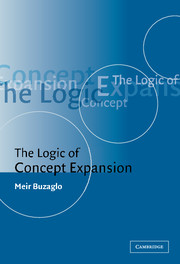Book contents
- Frontmatter
- Contents
- Preface
- Acknowledgments
- Introduction
- 1 Historical background
- 2 Frege's opposition
- 3 The grammar of constraints
- 4 Expansions as rational procedures
- 5 Implications for concepts
- 6 From words to objects
- 7 Gödel's argument
- 8 Implications for thoughts
- 9 “I was led astray by language”
- Epilogue: How do we go on from here?
- References
- Index
8 - Implications for thoughts
Published online by Cambridge University Press: 22 September 2009
- Frontmatter
- Contents
- Preface
- Acknowledgments
- Introduction
- 1 Historical background
- 2 Frege's opposition
- 3 The grammar of constraints
- 4 Expansions as rational procedures
- 5 Implications for concepts
- 6 From words to objects
- 7 Gödel's argument
- 8 Implications for thoughts
- 9 “I was led astray by language”
- Epilogue: How do we go on from here?
- References
- Index
Summary
If the truth can be stretched, what does this tell us about the meanings of sentences? This question must arise in any approach that connects the meanings of sentences with the concept of truth. But, as we have seen again and again, Frege's position gives this question a unique significance. Frege distinguished between science and fiction, calling the latter a realm where sentences have meaning without having truth-value, or, more precisely, where it does not matter what the truth-value of a sentence might be. Stretching the truth thus entails refiguring the distinction between science and fiction. The possibility of such a refiguring does, however, have a favorable implication. Just as true sentences can be used in literature, because they may be interesting for reasons other than their truth-value, there can also be sentences which lack a reference in Frege's view, yet are worthy of scientific discussion because they may potentially have a truth-value.
I therefore suggest that it is worth distinguishing a set of inchoate thoughts within the world of thoughts. These are partial senses of sentences that may either develop into complete thoughts or be discovered to be meaningless as the result of a non-arbitrary expansion. If we want to take seriously the idea that truth can be stretched, then we must amend several basic laws of Frege's involving thoughts and judgments. Subsequently I hope to sharpen my view by comparing it with that of Wittgenstein, the only thinker I know of who expresses a similar opposition to Frege.
- Type
- Chapter
- Information
- The Logic of Concept Expansion , pp. 134 - 148Publisher: Cambridge University PressPrint publication year: 2001



